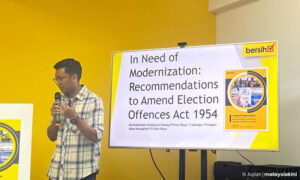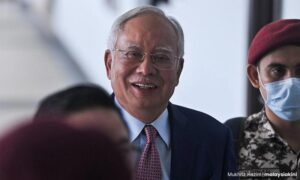By Hidir Reduan Abdul Rashid | Malaysiakini

The Federal government is not legally empowered to compel states to reopen their economy during the conditional movement control order (MCO), according to the legal fraternity.
Lawyer New Sin Yew (photo) told Malaysiakini that International Trade and Industry Minister Azmin Ali was “overreaching” when the latter warned states that businesses have the right to go to court to compel these states to allow businesses to resume operation.
He said this is because the Prevention and Control of Infectious Diseases Act 1988 (Act 342) or its regulations does not empower the federal government to order industries in states to reopen.
He pointed out that the regulation was worded in the negative in that it merely prohibits certain activities.
“Given that certain businesses are no longer prohibited, they are free to resume operation subject to the requirement imposed by state the business operates in”.
He said this is because states are empowered to require businesses to abide by local state requirements and conditions and the states can even forbid businesses to operate for a legitimate purpose.
“So state governments are not violating Act 342 or its regulations under Act 342. So even if a gazette under Act 342 says that Business A can reopen, states, can rightly impose conditions as they deem fit,” said New.
“State governments may be acting inconsistently with federal government’s policy, but it certainly is not inconsistent with existing laws,” New added.
A similar sentiment is echoed by veteran lawyer Syed Iskandar Syed Jaafar al-Mahdzar, who told Malaysiakini that the federal government cannot override the state’s power under the Federal Constitution to impose conditions for business operation or even forbid business activities during the conditional MCO.
He said that state governments are empowered by list three of the Ninth Schedule of the Federal Constitution, whereby they have concurrent jurisdiction with the federal government over matters of public health, sanitation and prevention of diseases.
“Thus the states share with the federal (government) the duty to prevent the spread of diseases, therefore the states have the right to decide what is best for each state,” he said.
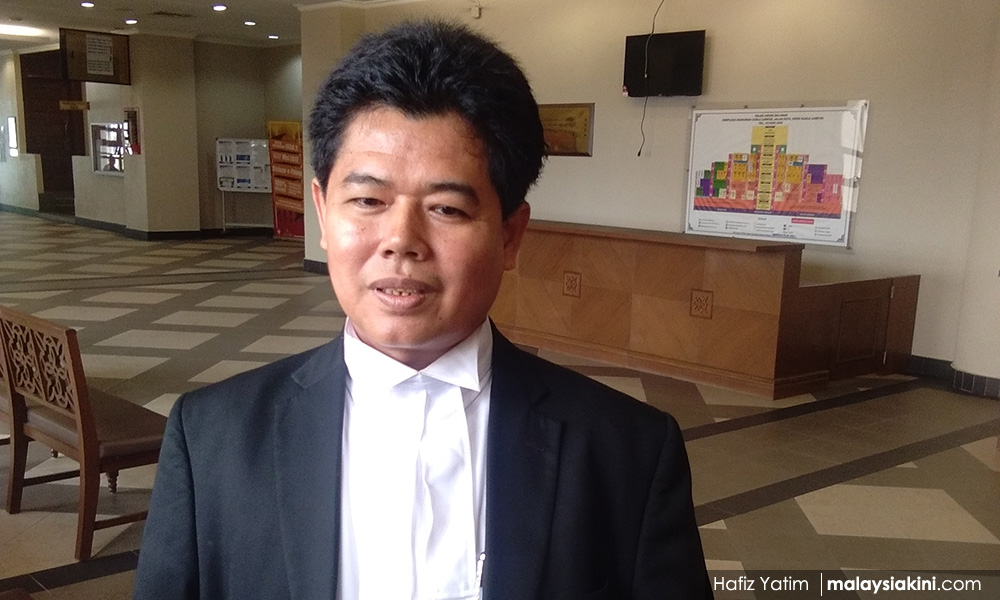
On whether this means that businesses may not succeed in any hypothetical lawsuit to compel states to allow them to resume operating during conditional MCO, Syed Iskandar (above) agreed.
“Yes, and the states can counterclaim for damages for the action being vexatious, frivolous and abuse of court process.
“Also, the state can lodge police reports against Azmin for issuing a threat and also sue Azmin and MITI (International Trade and Industry Ministry) for damages for intentionally misleading states that might cause further financial losses to the states if later on more people get infected,” he said.
He reminded Azmin that the National Security Council (NSC) Act, which empowers the NSC to issue directives during the MCO, also cannot override the powers of the state under the Federal Constitution.
“The Federal Constitution is the supreme law of the land and states are merely complying with the Federal Constitution,” said Syed Iskandar.
Speaking to Malaysiakini, another veteran lawyer Shaharudin Ali said that states have the right to say no to the federal government in regards to reopening their economy during conditional MCO, as the states have the overriding duty to protect the safety and well being of citizens residing therein.
He noted that If states are of the view that federal law is likely to trigger another wave of the Covid-19 pandemic, they can take a different position than that proposed by the federal government as they both have joint jurisdiction on health matters per the Federal Constitution.
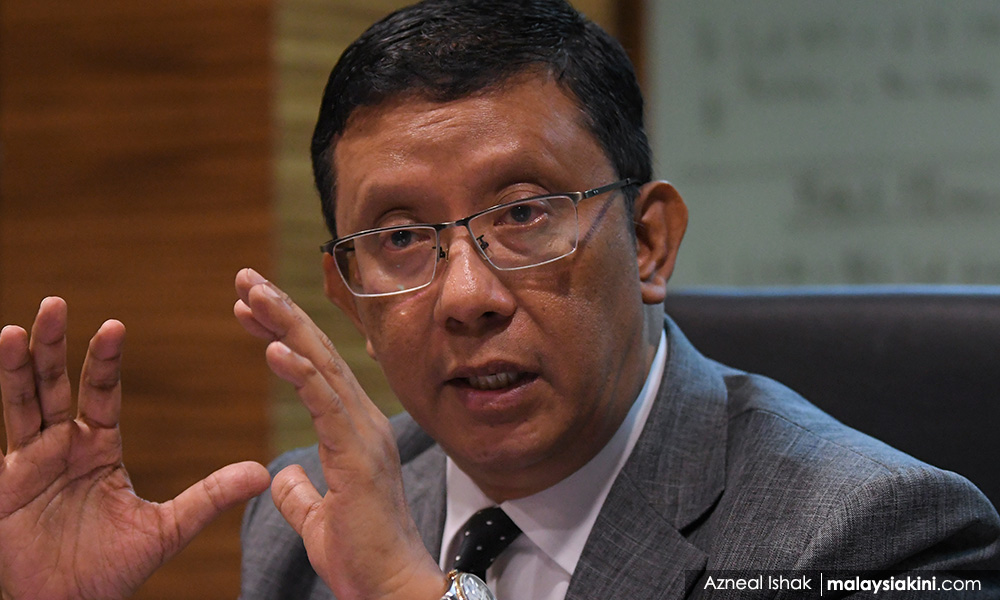
Shaharudin (above) pointed out that the state list in the Federal Constitution itself already provides sufficient platform for states to make decisions in the interest of their respective residents in matters of public health, sanitation, and prevention of diseases.
“In my view, the states have the right not to adopt or follow conditional MCO because the federal government cannot be seen to have the absolute right to force people to risk their own lives. It is like forcing us to ‘commit suicide” as it were,” he said.
Meanwhile, in a media statement, Bandar Kuching MP Kelvin Yii urged the federal government to stop issuing threats to states that do not abide by its directive to reopen the economy during the conditional MCO, and instead respect the concept of federalism practised in Malaysia.

Yii, who came from a legal educational background, said that this is because based on item seven of the Ninth Schedule of the Federal Constitution, both federal and state administrations have concurrent power in the areas of public health and prevention of disease.
He said in the context of Sarawak, it has the Local Authorities Ordinance 1996 and the Businesses, Professions and Trades Licensing Ordinance that deal with public health in public areas and also deal with business licensing and setting of regulations for running a business in the state.
Yii (photo) said that Sarawak also has the Protection of Public Health Ordinance 1998 which gives a certain authority to the state to deal with matters of public health in a local context.
“Although I acknowledge the presence of Article 81 of the Federal Constitution which gives the condition where the state Government can exercise executive authority as long it is consistent with any federal law applying to that state, but I believe this dispute can be settled in a more constructive manner.
“So, I do hope the state government can respond to the federal government as soon as possible to give some clarity as this has caused a lot of confusion on the ground, especially among the people.
“People just want clarity and certainty, and also proper and detailed steps on the proper long-term “exit plan” to adapt to this “new normal,” he said.
“This has to be properly communicated and adequate time also should be given for proper adaptation and efficient enforcement rather than having a flip flop policy that only causes more confusion.
“If this gets out of control, this may not only trigger a constitutional crisis that may threaten (and) scare the effectiveness of our fight against the pandemic, but also even scare away investors and affect the long-term economic future of our country,” Yii warned.
Yesterday, Azmin (below) warned state governments of possible legal action taken by industry players if they refused to reopen their economies under the conditional MCO as announced by the federal government.
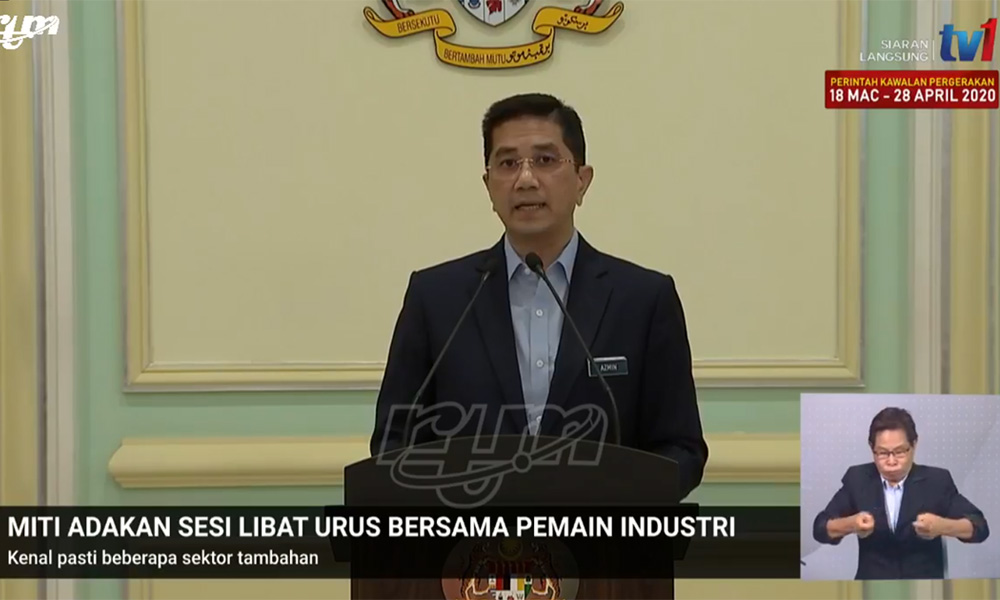
This, he said, was based on a May 3 federal gazette that gazetted the conditional MCO under the Prevention and Control of Infectious Diseases Act 1988.
On May 3, it was reported that six states would not reopen their economy with the beginning of the conditional MCO beginning Monday, namely Sarawak, Sabah, Penang, Pahang, Kelantan, and Kedah.
Earlier today, Parliament Federal-State Relations Select Committee chairperson Hassan Abdul Karim reminded Azmin that federal and state governments are jointly given power on health matters under the Ninth Schedule of the Federal Constitution.
Hassan said that Azmin and the federal government cannot just rely on Act 342 to impose their will on state governments to follow the federal government’s decision to reopen the economy beginning yesterday.


